Expert Voices
WeVision EarlyEd is built on the specialized knowledge and lived experiences of proximity experts — the families, early childhood educators, and program administrators who use or work within the child care system. We worked diligently to be clear about what they want in the ideal system.
Defining the ideal child care from the viewpoint of “proximity experts” is what makes WeVision EarlyEd new and groundbreaking. Their expertise, coupled with that of policy influencers and policymakers, is what will allow us to make the ideal vision of child care in America real. Their data and ideas are the basis of the core mindset shifts and solutions we are advancing. Below, you can hear directly from the experts.
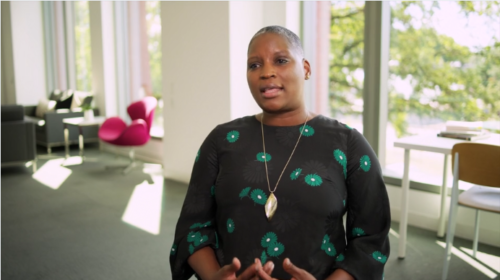
Expert Solutions - Marica
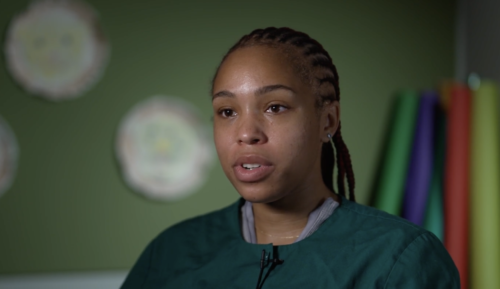
Why WeVision EarlyEd? - Javi
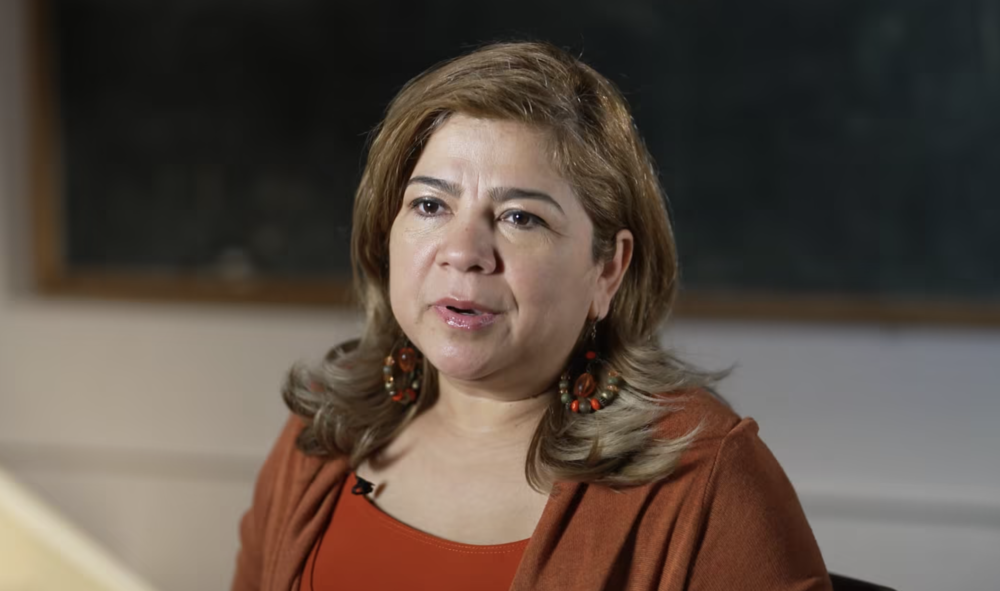
Why WeVision EarlyEd? - Violeta
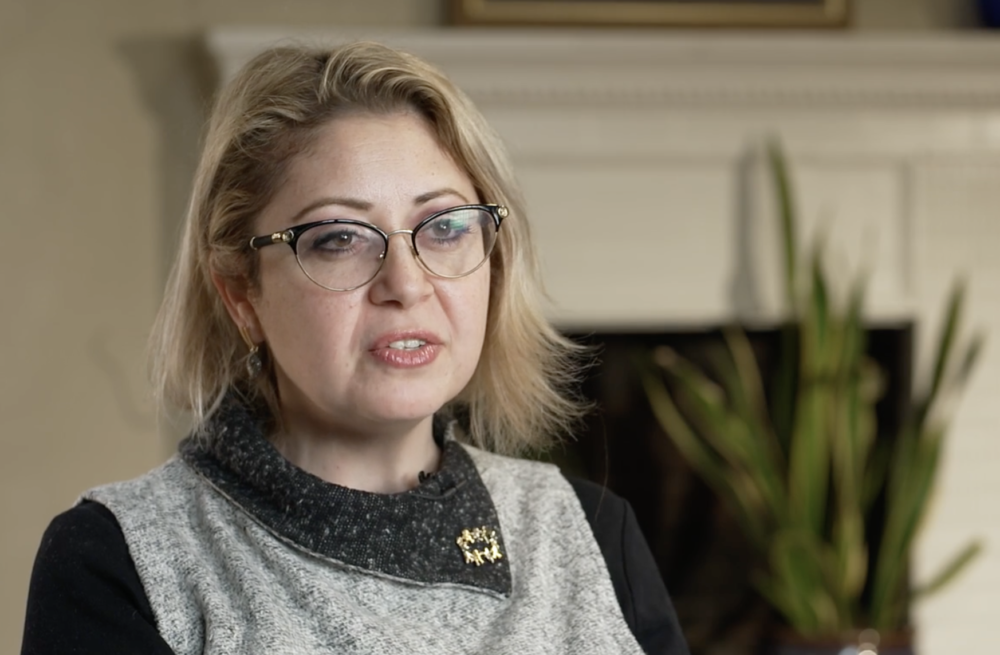
Why WeVision EarlyEd? - Berna
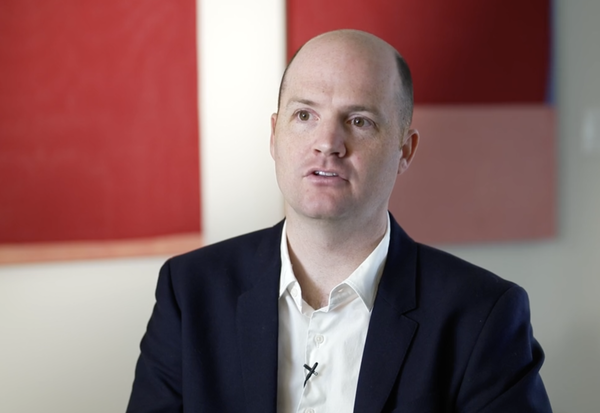
Why WeVision EarlyEd? - JP
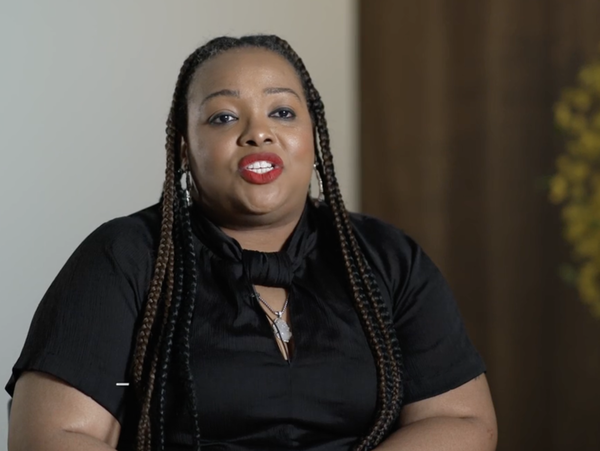
Why I'm an expert - Tynisha

Why I'm an expert - Alethea

Why I'm an expert – Angela

Ideal Child Care –Michael
Several of our proximity experts offer a deeper look into their journeys in the child care system. Read their profiles.
Berna Artis, Administrator: Treat us like professionals, because we are
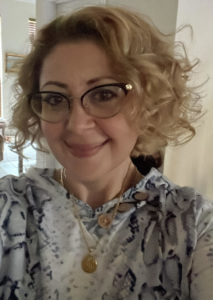
Much of D.C.’s current early child education system frustrates Berna Artis, who leads the School for Friends preschool near Dupont Circle in Northwest D.C. But what upsets her most is that she and her colleagues are not treated as professional educators. She points out that several of her colleagues in the WeVision EarlyEd project have master’s degrees, many have bachelor’s degrees, and others have associate degrees or child development associate (CDA) credentials — or are working toward them.
“I’ve been in this field for 22 years, 16 as the head of school, and it’s harmful and disappointing that policymakers, the media and even some people in the field have this day care mentality about the work. They don’t realize how damaging this language is,” Artis says. “We choose to work with very young children. You shouldn’t have to work only with older children to be considered a teacher. We all are early childhood educators, not day care workers.”
Her school serves 70 children, ages 12 months to five years. As a Quaker preschool, much of the programming focuses on diversity, equity and social justice. “Kindness and empathy are always at the core as well as respecting children as little human beings,” Artis says.
The field’s low status has real-life consequences, mainly low pay, especially compared to DC Public Schools (DCPS) staff, who earn more and receive much more generous benefits. “Most DCPS teachers get summers off. Our school year is 12 months. We close two weeks during the winter break, plus only one week at the end of the summer, which is our work week to prepare for the new school year,” Artis says. She says the pandemic exacerbated these inequities; at the beginning of the pandemic, while early childhood programs were deemed essential, her counterparts in DCPS received priority for the vaccinations and antigen tests, plus were allowed to have up to 12 children per classroom, while centers were limited to eight. “We at least need to get on par with our colleagues in DCPS. We’re serving the same kids, just in different settings,” she says.
“The system just doesn’t work,” Artis concludes.
Going forward, Artis has several priorities. First and foremost, the field needs “to get on the same page” in defining the profession. “There’s a real science to what we’re doing. The public needs to be informed and recognize the importance of early years for all children, our society and the world at large, and the professionals doing this incredible work,” she says.
There also needs to be a common understanding about what best practice looks like in the classroom, no matter which ward the ECE program is located in. For instance, Artis’s school offers weekly professional development for staff. It has a curriculum consultant with more than 40 years of experience and three childhood development consultants who specialize in occupational therapy, special education, and speech pathology. “They’ve been part of the school for almost 20 years and are key to what we do,” she says.
She would like to see the Office of the State Superintendent of Education (OSSE) better support the field by facilitating shared services in areas from health care and human resources to legal advice. While there are shared services for ECE programs with 50 or less children, they are not sufficient. “Before the pandemic, I used to say, as a school leader, I wore three hats of leadership: pastor, general and ambassador. In the past two years, I’ve added a fourth hat: nurse practitioner,” Artis says.
“I’m stubborn. I want to see change,” Artis says. She knows first-hand the importance of the work. When she first moved here from Turkey to earn her master’s degree, she taught middle and high school students. “But I realized I had to start the work with the younger ones. So much needed to be done.” So, she switched her master’s concentration from school administration to early childhood education. “That was my turning point.”
She’s hoping that increased awareness of the importance of early childhood education since the pandemic represents a similar turning point for the field. “I know we can do it. So many professionals have given their lives to this work already. Now we professionals need to claim our power and be at the table when policies are being made.”
Alina Buzamat, Educator: An unexpected career shift brings her to early childhood education
 “There’s a saying that when you make plans, God is laughing. God is laughing a lot in my case,” says Alina Buzamat, reflecting on her journey to the early childhood education profession.
“There’s a saying that when you make plans, God is laughing. God is laughing a lot in my case,” says Alina Buzamat, reflecting on her journey to the early childhood education profession.
Her journey began when she moved here from Romania six years ago, intending to study sociology at George Mason University. But when her transcripts and other paperwork were delayed extensively, she was forced to find work. A longtime music student, she began teaching piano to young children and in after-school programs in northern Virginia. “It was amazing, I liked it a lot. It made me change my mind about my career. I enjoyed working with children more than with computers and numbers,” she says.
When the pandemic curtailed those lessons in 2020, a teacher friend told her about a job at the Child Development Center in Washington, D.C., which mostly serves children of federal employees. After a Zoom interview, she began work as a teacher assistant in March 2021. She now splits her time between the classroom and office. She takes care of children’s files, mediates the relationships between the parents/teachers/management, and works as a backup when the director is out.
Alina loves the work. “I love their curiosity, their interest in learning, observing how their minds work. I get to see theory in practice every day. Plus, they’re so cute and adorable,” she says of her students.
But she is disappointed by the field’s many injustices — the low pay, crazy hours and minimal benefits, including no summer break and only two weeks of vacation a year. “The pay is inequitable compared to what we do. The teachers are young and energetic and smart. They care so much. But you can’t survive. It’s a crazy amount of work for a small reward.”
Alina says the Romanian system is very different. From birth to age 2, children stay at home with their mothers. From 2 to 6, they are in school, typically two teachers responsible for 20 to 30 children. Children have the same teachers for all four years, which creates strong social bonds and relationships.
“I was shocked when I started here. Why do these children have so many teachers? They’re so young. Children are moved to different classrooms, have to get used to the new settings, try to make new friends, and connect with two other different teachers,” Alina says. “They don’t have the feeling of belonging with their peers. There’s a lot of social anxiety. Although anxiety has many benefits, especially for young ones, not all children easily cope. One can see that in children’s ability to play. Some kids don’t know how to play. They’re socially awkward.”
The pandemic worsened the situation here. Alina says her center was one of the few in D.C. that stayed open. Requiring 2-year-olds to wear masks all the time was a “circus,” she says, with the youngsters routinely dropping them on the floor and/or exchanging them with classmates. She understands the rules were designed to protect everyone, “but in practice they were a disservice to both young children and teachers.” Students had to social distance in their own corners of the classroom, playing alone with a box of toys. Inevitably, students and teachers got sick and the center was routinely understaffed. “It was very high risk for all of us,” Alina says. “I started here at the worst possible time.”
One pandemic benefit, however, was that families came to appreciate the teachers’ work more. “Parents started to realize [what we did]. They became much more aware, humble and realistic.” She hopes that attitude continues.
Going forward, Alina is earning her master’s degree in elementary education at the University of the District of Columbia, where she earned her bachelor’s degree. She is hoping to focus on music in early childhood education. “Emphasizing the stimulation of the auditory sense through learning reshapes how the brain develops. It will be a reform in ECE,” she says.
Alina expects to get a job with a nearby public school system in Maryland. The pay and benefits are much better and she’ll have more of a chance to grow as a professional. “I’d like to experience teaching different ages. I’ll probably start in grade 1 and then go up, seeing which age suits me the most.” She may even end up teaching in a university.
JP Coakley, Administrator: Focused on the business of early childhood education
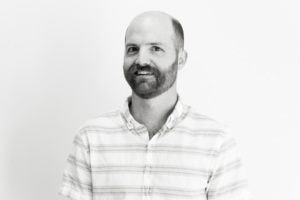
J.P. Coakley’s Two Birds center is in the Tenleytown neighborhood of Northwest D.C. Unique among ECE providers, Two Birds also offers WeWork-like shared office space for adults and weekend programming from speech therapy to soccer, hence the company’s name. “We wanted to kill two birds with one stone for families,” says Coakley.
Families receive regular photos and updates via Brightwheel, an app that helps them monitor their child’s daily experience. Coakley and his business partner would like support to open additional centers serving even more families.
However, there are still not nearly enough educators to meet the huge demand. Two Birds turns away some 90% of applicants when fully staffed, simply because there aren’t enough spots available. Over the past couple years, the company turned away an even higher percentage for lack of staff. Coakley and his partner want to expand beyond their two centers (one in DC, one in Alexandria), and finding enough educators to staff new centers is the biggest challenge to their growth plans. The company will open a third location in D.C.’s West End in June 2023 and is already focused on staffing.
Complicating the finances, the D.C. center has regularly lost students to DC Public School (DCPS) and public charters at ages 3 and 4, when the public school year begins. Few families are willing to pay private tuition for pre-K when DCPS and public charters offer it for free. From a financial perspective, this can be crippling for centers. Centers need to retain older students to mitigate the hefty business expenses incurred in infant and toddler classrooms, where staffing ratios are more restrictive (1:4 staffing ratio for infants and toddlers vs. 1:8 or 1:10 for older children). D.C. has the highest cost of infant and toddler care in the nation.
This year, Two Birds partnered with the Office of the State Superintendent of Education (OSSE) to participate in its Pre-K Expansion and Enhancement Program. This is part of the city’s bid to expand access to affordable pre-K3 and pre-K4, which means Two Birds’ tuition is heavily subsidized for 3-5-year-olds. “It’s a win for the city, families and the center since it expands access to seats within D.C., allows the 92 D.C. families we serve to remain in a school they’ve been with since birth, and makes it possible to retain the critical older classes,” Coakley says. This public-private partnership has transformed the center, and Coakley sees it as the path forward.
“Early childhood education has to be thought of as a public good,” he says, “and not starting at age 3, but at birth.” He adds: “We’d never think of cutting corners on other public services, whether it’s maintaining an aircraft carrier or funding a local fire department. But we do that with early education all the time. At least policymakers are talking about this now. That’s a big shift in the last two years.” Coakley would love OSSE to help strengthen the sector’s infrastructure by supporting shared services, from QuickBooks to facilities maintenance.
Coakley got into this work by chance. He graduated from Case Western Reserve with a degree in macromolecular engineering (“plastics,” he says), worked in China for two years, learned Mandarin, then spent four-and-a-half years as a quality engineer in the nuclear energy industry. “Child care rules and regulations can be confusing and frustrating at times, but I’m used to navigating those playbooks from my time in nuclear energy,” he notes.
He ended up in Washington, D.C., as a graduate student in business at Georgetown University. He and his wife were expecting their first child at the time, so child care was on his mind. He met his business partner — another expecting parent with a background in architecture — in the MBA program. “From the start, we approached this as businesspeople and surrounded ourselves with educators,” he says.
“Whether you’re operating a for-profit or non-profit, this is a business. At the end of the year, you have to have more or the same amount of money you started with. If you ignore the financials, you have no opportunity to provide the education,” he says.
The self-described “numbers guy” obsesses about the numbers — fixed costs such as rent, food and diapers, and variable costs, mainly labor, which accounts for about 65% of the company’s budget. Each classroom has two teachers, plus “floaters.” Curriculum support staff focus on education programming, professional development and enrichment. Two Birds offers comparatively generous wages and benefits, including health care, a 401(k) plan, and education and commuter subsidies. “We want our employees to be proud to work here … and be able to live in D.C., too,” he says.
Staff also have access to a gym in the basement of the building and a Whole Foods across the street. The D.C. center has a full-time staff of 35, including teaching teams, a studio teacher, a curriculum coach, the director and support team. Unique among early childhood education providers, Two Birds also offers WeWork-type, shared office space for adults, and weekend programming from music and dance to soccer and Taekwondo — hence the company’s name (“we wanted to kill two birds with one stone for families”). Parents receive regular photos and updates via Brightwheel, an app that helps them monitor their child’s daily experience.
The center has also revised its staffing model to dedicate an additional teacher to every classroom rather than continue to rely on “float staff.” This provides more support for teaching teams, more personal time, and additional training and coaching time out of classrooms; “burnout is a real issue,” he says. And Coakley says he’s striving for a better work-life balance himself.
“If I could wave a magic wand, we’d have public child care across the nation. It might undermine aspects of our current business model, but that would be okay. Our goal in entering this industry was to adapt to create a sustainable common good,” he says. “You know, we were just one vote away from universal preschool in the 1970s. Unfortunately, that one vote was President Nixon’s, who vetoed the bill.”
Tynisha Wright, Parent: Helping families identify resources and supports
 Tynisha Wright, a mother of three (15, 7 and 3), knows firsthand the importance of supporting families in making good child care choices for their children. Providing better information and resources to families has become her lifework. “I found my niche and I love it,” Wright says in discussing her current job at the Congress Heights Family Success Center. She helps families navigate multiple issues, from paying rent to finding a job. Her dream is to train staff all over the city to help families. “There should be resources all over the city to assist families. We need more parent advocates to help advise parents on anything they need to know,” such as paying rent, applying for food stamps, getting a Social Security card, finding affordable medical insurance, and identifying the right school and early childhood center. “There should be assistance programs in every school and day care center,” Wright says.
Tynisha Wright, a mother of three (15, 7 and 3), knows firsthand the importance of supporting families in making good child care choices for their children. Providing better information and resources to families has become her lifework. “I found my niche and I love it,” Wright says in discussing her current job at the Congress Heights Family Success Center. She helps families navigate multiple issues, from paying rent to finding a job. Her dream is to train staff all over the city to help families. “There should be resources all over the city to assist families. We need more parent advocates to help advise parents on anything they need to know,” such as paying rent, applying for food stamps, getting a Social Security card, finding affordable medical insurance, and identifying the right school and early childhood center. “There should be assistance programs in every school and day care center,” Wright says.
One immediate priority is for the city to host an early childhood education fair, similar to the MySchoolDC events for public schools, which would help introduce families to the wide range of available options and guide them in identifying the best fit for their child. Like many parents, Wright found her son’s current program through word of mouth.
Indeed, providing better information and resources to parents and families has become Wright’s life’s work. “I found my niche and I love it,” Wright says in discussing her current job at the Congress Heights Family Success Center. As a program coordinator, she helps families navigate multiple issues, from paying rent to finding a job. She teaches mothers how to cook healthy meals from scratch and to do STEM (science, technology, engineering and math) activities with their children at home.
Her “sister circle” allows 10 women to regularly discuss their challenges in a safe space. “We cry, we laugh. It’s important for them to have someone outside the family, who’s not judgmental, to talk with about their stress and issues.”
She also is very active in Parents Amplifying Voices in Education (DC PAVE), serving as the Ward 8 parent leader for the nonprofit that helps parents become better informed and active as community leaders.
Wright was first introduced to family engagement work through the support she received from Lift DC, a nonprofit community service organization that helps lift people out of poverty. For two years, she met monthly with a coach who helped her manage her finances and address other life challenges. Regular workshops provided a variety of supports, including how to succeed in a job interview.
Indeed, her Lift DC training helped her land a job at Apple Tree School, where she led monthly Parent Cafes that helped parents problem-solve common challenges. “It was great for building relationships. All schools should do these,” she says.
Wright continues to learn. “I’m always looking to see what I can do better as a mom and in a job,” she says. To that end, she recently earned her certificate from an infant and toddler mental health program at Georgetown University. She is focused on how to help parents open up, share their feelings and tell their stories. “It’s so important that they feel comfortable with you, without feeling judged.”
Her dream is to train staff all over the city to help families. “There should be resources all over the city to assist families. We need more parent advocates to help advise parents on anything they need to know,” such as paying rent, applying for food stamps, getting a Social Security Card, finding affordable medical insurance, and identifying the right school and early childhood center. “There should be assistance programs in every school and day care center,” she says.
One immediate priority is for the city to host an Early Childhood Education Fair, similar to the MySchoolDC events for public schools, which would help introduce parents to the wide range of available options and guide them in identifying the best fit for their child. Like many parents, Wright found her son’s current program through word of mouth.
Because of the pandemic, she couldn’t even visit the center before enrolling him. “I was so nervous. I was putting my son’s life in someone else’s hands, and I didn’t even know who the teacher was.”
As the pandemic eases, Wright hopes all centers will be more proactive in strengthening family-teacher ties. “Teachers need to have ‘meet and greets’ with parents before school starts,” she says. “They need to build relationships.” Wright expects to be on the front lines of such a change.
